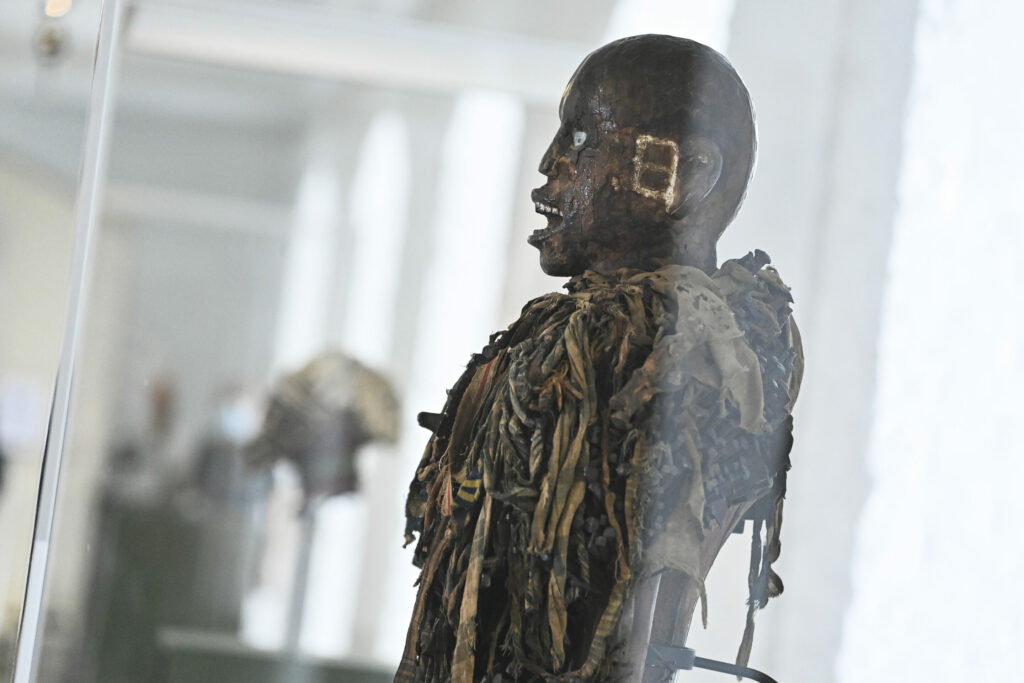Several activists organised a surprise action at the AfricaMuseum in Tervuren to highlight the collection of stolen artefacts linked to Belgium's colonial past in Congo and demand their return.
Belgium has a dark colonial past. Its colonial king, Leopold II, for decades, exploited the Congolese for personal gain, enslaving its people, plundering its resources, and leaving a death toll in the millions. Additionally, during the Belgian colonial rule between 1885 and 1960, thousands of artworks ranging from wooden statues and elephant ivory masks to manuscripts and musical instruments were taken illegally.
Many of these objects were kept in the AfricaMuseum. After reopening in 2018 following its renovation, calls for the restitution of colonial collections reawakened. In 2022, Belgium created a legal framework to return all items it illegally obtained, and since then, it has been working alongside the Congolese for this purpose.
However, the process is a slow one, and critics argue that, while objects can be returned, the damage done by their removal – often disrupting the cultural continuity and identity of the Congolese – is less easily addressed.
To draw attention to this and the continued presence of looted artefacts in the museum, a group of activists from Debt 4 Climate, alongside other collectives, placed hundreds of signs on the stolen objects in the museum.
Belgium's cultural debt
"This object is a source of financial, symbolic, and cultural gain from the theft and monetisation of Congo’s cultural heritage. Acknowledge your guilt. Return the stolen objects," one of the signs read.
François Kamate, an environmental and human rights activist from Kivu in the Democratic Republic of Congo, explained that the artefacts taken during Belgian colonial rule are more than stolen items; they represent Belgium’s larger cultural debt to the Congolese people.
Debt 4 Climate emphasised that the return of artefacts must be "unconditional" and in collaboration with civil society in Congo and the Congolese diaspora in Belgium. If Congolese authorities or civil society decide not to request the return of certain items, the group argues Belgium should at least pay rental fees for the ongoing profits generated by these objects.
"Reparations for colonial atrocities are not just about rectifying historical wrongs but about restoring fundamental human justice," Debt 4 Climate concluded. "Belgium must make reparations for its past atrocities and return all stolen art. This commitment is crucial to building a just and inclusive future."

